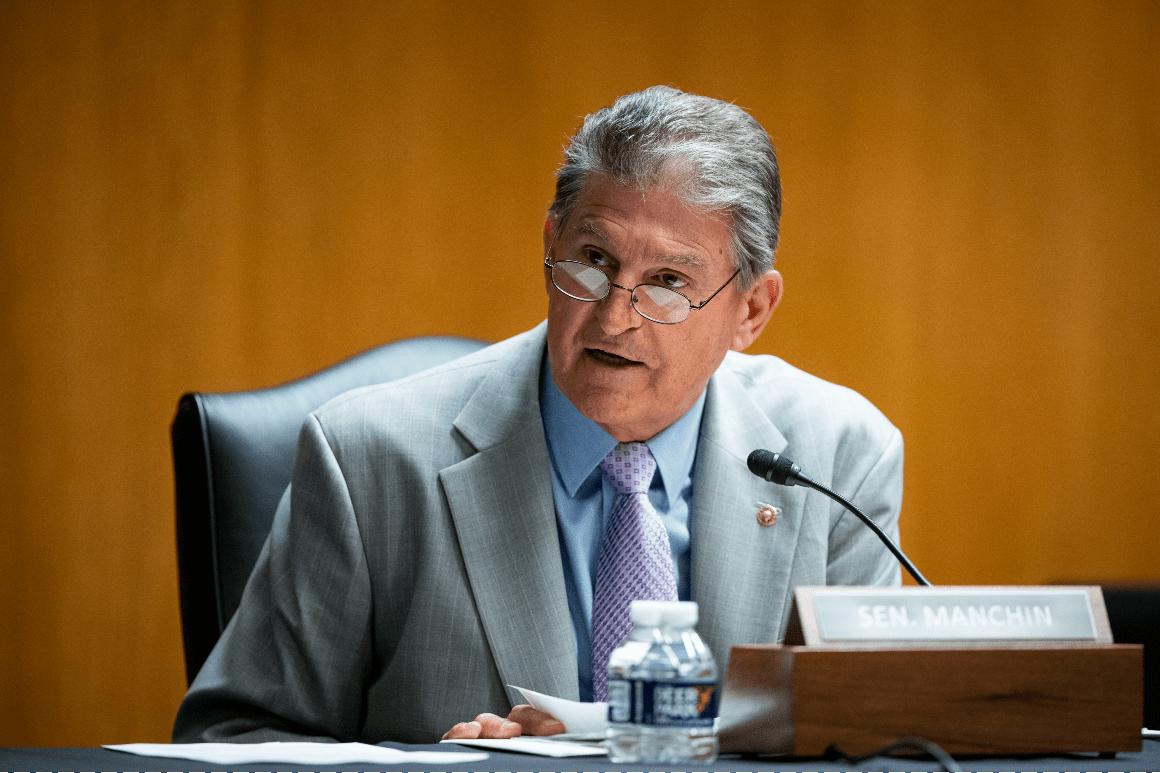Democrats confront their Manchin and Sinema dilemma

“Joe is Joe. Joe is going to hammer it out, the way he wants to hammer it out and go from there. We both have similar values but we certainly don’t think alike,” added Tester, who’s been more comfortable with the $3.5 trillion spending number that Manchin has rejected but wants it paid for. He said the two have not discussed the reconciliation bill in detail.
As consideration of the partisan spending bill hits crunch time, Manchin (D-W.Va.) and Sinema (D-Ariz.) are aiming at shaving the package down so much that it could endanger much of the House’s work so far in completing several sections of the $3.5 trillion package. The party had hoped to have a bill that could pass both the House and Senate sometime this month, a goal that appears increasingly herculean.
On Sunday, Manchin suggested he’d support spending at perhaps half that level, or whatever can be paid for via tax increases. Yet he wants smaller tax increases than envisioned by some fellow Democrats in Congress, potentially slimming the bill further. And with a 50-seat majority, whatever Manchin agrees to may be the final deal that can pass Congress.
“If we assume what he is saying, and you need 50 votes, it will be something less than [$3.5T],” said Sen. Debbie Stabenow (D-Mich.), a member of Democratic leadership, who rebutted Manchin’s calls to slow down consideration of the bill. “We’ve got some pretty big crises in front of our faces. We don’t have to wait until down the road, when we talk about wildfires and what’s happening with the climate.”
While Sinema has specifically rejected the $3.5 trillion number, she’s otherwise been quieter than Manchin about where exactly she stands. A spokesperson for Sinema said she “will be reviewing the various committee proposals, and will continue to work in good faith while engaging with her colleagues and the administration.”
But the two are often aligned, and Manchin is calling for a more deliberative process that envisions a far smaller government expansion than is preferred by most Democrats.
Manchin appeared on three Sunday shows, sparring with Sen. Bernie Sanders (I-Vt.), who has narrowed his ambitions from $6 trillion in spending to $3.5 trillion. And the outsize sway of Manchin is wearing on some Democrats.
Several Senate Democrats declined to engage with reporter questions Monday about Manchin’s latest objections. Sen. Martin Heinrich (D-N.M.) declared: “I can’t respond to everything Joe Manchin says, that’s not my job.” And after saying on Sunday that Manchin’s position to scale back the bill was “absolutely not acceptable to me,” Sanders merely stated that the $3.5 trillion package is “enormously popular with the American people,” when asked Monday.
Those reserved comments highlight Democrats’ reality: They need Manchin’s vote and criticizing him doesn’t help them.
“We have 50 Democrats, we need all of them,” Sen. Elizabeth Warren (D-Mass.) said.
Manchin and Sinema’s increasingly public concerns over Democrats’ social spending plan come more than a month after all 50 Senate Democrats supported their $550 billion bipartisan infrastructure package. While many members of the caucus weren’t enthusiastic about the bill, they supported it nonetheless, with the understanding that their priorities would be addressed in a second bill.
It’s now likely that Democrats will miss Senate Majority Leader Chuck Schumer’s Sept. 15 goal for committees to complete bill text for that budget reconciliation bill, which can evade a GOP filibuster and pass with a simple majority. And progressives’ hope to pass the social spending package by Sept. 27, the date Speaker Nancy Pelosi set for the House to take up the bipartisan infrastructure package, increasingly looks like a long shot.
“We have work to do … there are clearly differences,” said Senate Majority Whip Dick Durbin (D-Ill.). “There has to be an element of flexibility on both sides. The margins are just so close in the House and in the Senate that you can’t assume anything.”
Several House Democrats have signaled they may oppose some or all of the party’s reconciliation bill, another sign of the difficulties ahead for Democrats, who can only afford to lose four votes in that chamber. And in the Senate there are still Democrats other than Manchin that haven’t signed onto the $3.5 trillion package.
But Manchin and Sinema remain Democrats’ toughest gets.
“I disagree with Sen. Manchin’s concern on size, but I recognize we have to listen to each other and come to an agreement,” said Sen. Ben Cardin (D-Md.).”There will be more and more negotiations.”